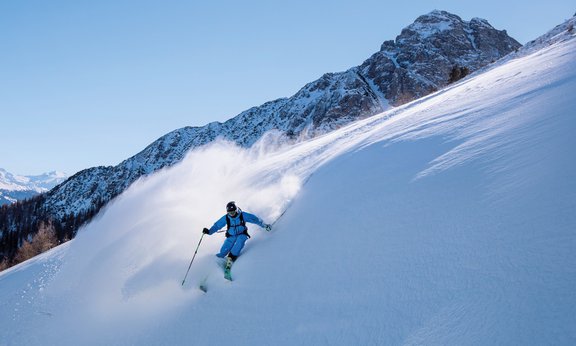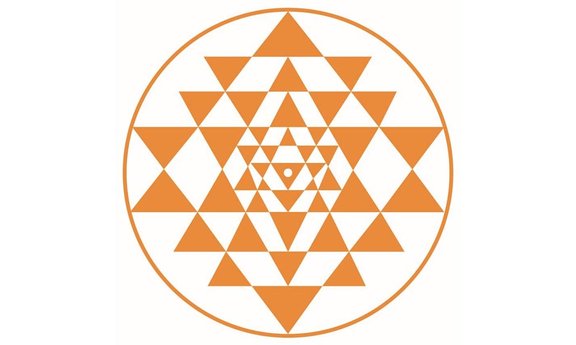Bachelor’s Programme Sport Science
Would you like to acquire in-depth knowledge in the areas of fitness, health and high-performance training and familiarise yourself with performance diagnostics methods?
The students of the Bachelor’s Degree Programme in Sport Science acquire basic knowledge of anatomy, physiology, sport psychology and sport sociology as well as the core subjects of sport science such as kinesiology, biomechanics, training theory and sport pedagogy. Students receive practical training in many sports.
Please note: the language of instruction for this programme is German.
Study Code
UC 033 628
Supplemental Examinations
Examination to demonstrate suitable physical fitness must be completed satisfactorily before admission to the study programme.
FAQ
Graduates have subject-specific knowledge in the core disciplines of sport science. They possess detailed skills of the deciding factors for sporting performance and know about situation-specific application of the essential procedure of performance diagnostics and fundamental training methods. They are able to develop and implement short- and long-term training plans. They have didactic and organizational qualifications to deal with performance athletes and health-concerned sportspersons.
The increasing importance of movement and sports as a measure to maintain and recover or improve health, fitness and life quality, on the one hand, as well as the importance of competitive sport in society and economy, on the other hand, require scientifically well-founded knowledge of people who work in relevant occupational fields. The Bachelor's Programme Sport Science conveys the necessary basic skills and qualifications for the two main areas.
The Bachelor's Programme Sport Science prepares graduates for occupational fields in
- sport facilities, sport associations and fitness centres,
- sport-scientific counselling,
- movement and sports offers for children, adolescents, adults and senior citizens to promote and maintain or recover health in competitive, leisure, trend and adventure sports,
- sports and movement programmes for workplace health promotion,
- health, sports and adventure tourism,
- sports equipment development and manufacturing,
- health-oriented treatment centres and care facilities for general health promotion, prevention and therapy with specific movement and training intervention and rehabilitation,
- competitive sports-oriented centres for all ages with comprehensive coaching (e.g. sport-specific special training, athletic training, preventive training),
- research in the field of movement and sports.
Graduates tracking: Shows which occupational fields students enter after graduation
Master's Programmes
More offers
Faculty of Psychology and Sport Science Examination Office Information for students with disabilities
Curriculum
From the field

Sportmedizinische Labore eröffnet
Am Campus Sport der Universität Innsbruck wurden Anfang Juni neue leistungsphysiologische Labore der Arbeitsgruppe von Sportmedizinerin Anne Hecksteden eröffnet. Im Beisein von Landesrätin Cornelia Hagele startete gleichzeitig eine neue Studie zu den gesundheitlichen Vorteilen von regelmäßiger körperlicher Aktivität in der Tiroler Bevölkerung.
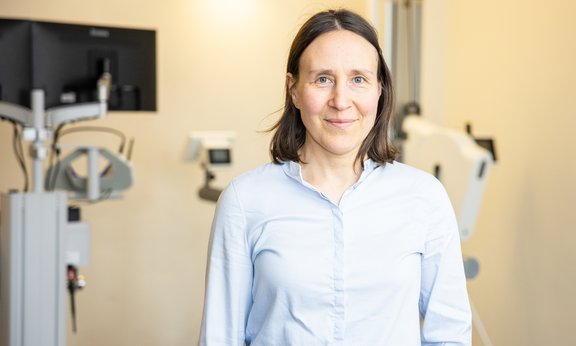
Menschliche und maschinelle Intelligenz im Sport
Die frühere Leistungssportlerin Anne Hecksteden hat mit ihrem Team einen Algorithmus entwickelt, der das tägliche Verletzungsrisiko von professionellen Fußballspielern einschätzt. Demnächst steht eine Studie mit den ÖFB- Juniorinnen an. Ein Interview über die Eistonne zur Regeneration, zyklusbasiertes Training und Künstliche Intelligenz im Spitzensport.
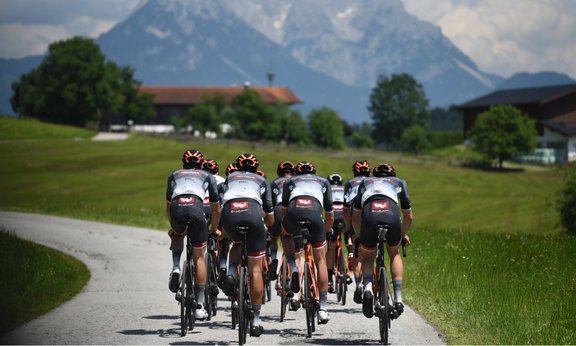
Auf dem Weg an die Spitze
Aktuell findet das bekannteste Radrennen der Welt, die Tour de France, statt. Einmal daran teilzunehmen, davon träumen auch die jungen Nachwuchs-Rennradfahrer des Tirol KTM Cycling Teams. Um sie ihrem Traum ein Stück näher zu bringen, werden sie seit einigen Monaten von einem Team an Wissenschaftlern begleitet, das vom Innsbrucker Sportwissenschaftler Justin Lawley geleitet wird.
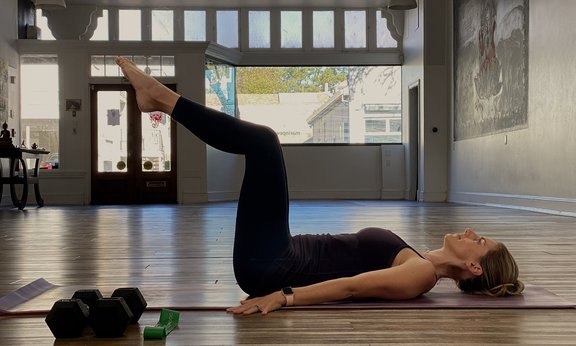
Bewegung macht den Unterschied
Sport ist gesund für Körper und Geist. Gerade Patient*innen mit psychischen Erkrankungen bewegen sich jedoch oft zu wenig, was sich wiederum negativ auf ihre psychische und physische Konstitution auswirkt. Warum das so ist und welche Bewegungsformen sich besonders gut für diese Personengruppe eignen, daran forscht die Sportwissenschaftlerin und Psychologin Carina Bichler.

